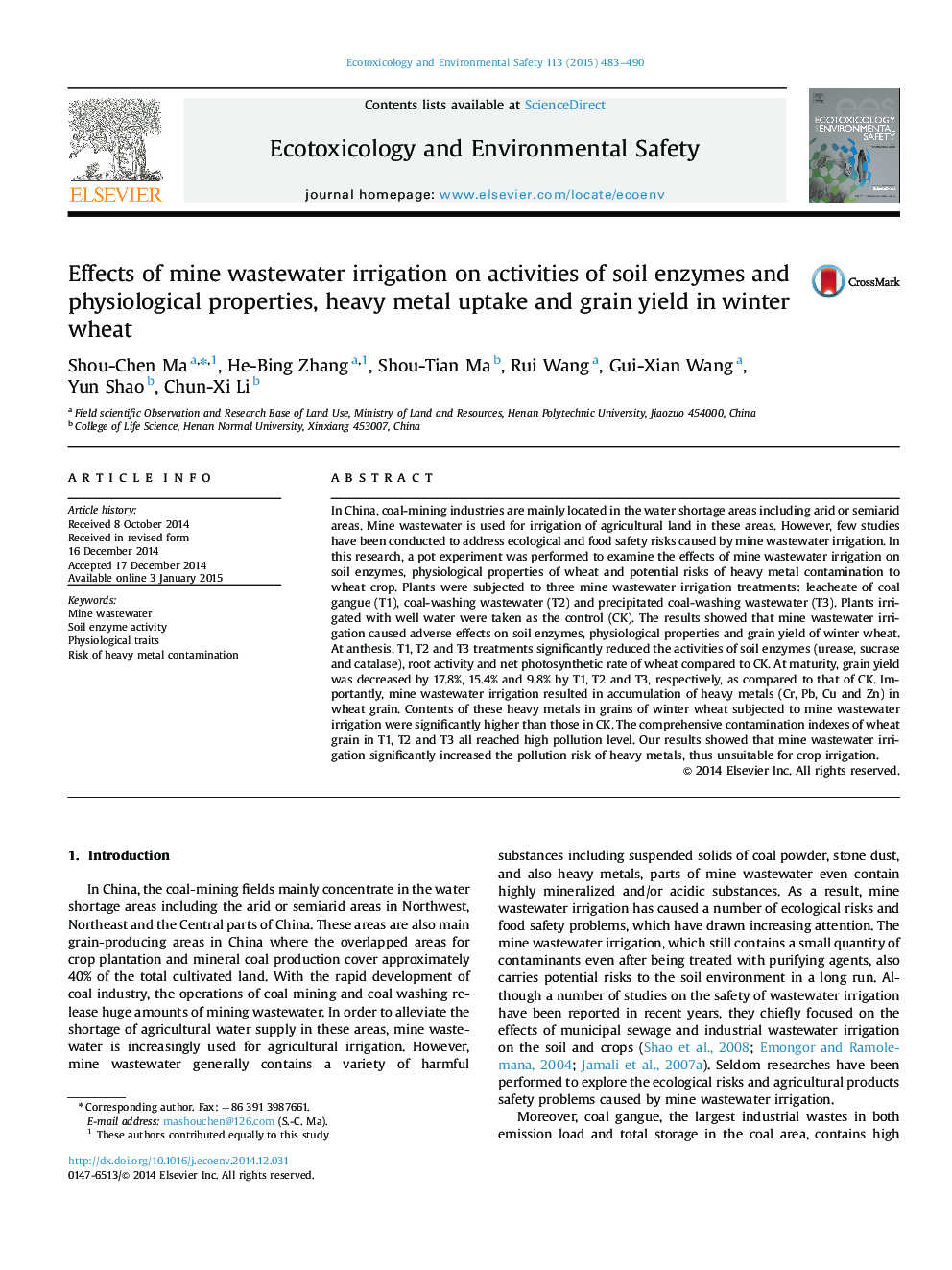| Article ID | Journal | Published Year | Pages | File Type |
|---|---|---|---|---|
| 4419718 | Ecotoxicology and Environmental Safety | 2015 | 8 Pages |
•Mine wastewater irrigation reduced the activities of soil enzymes (urease, sucrase and catalase), root activity and net photosynthetic rate of wheat;•Mine wastewater irrigation reduced soil pH and promoted the uptake of heavy metals by crops;•Mine wastewater irrigation increased the contents of CR and Pb in wheat, above The allowable levels for agricultural irrigation.
In China, coal-mining industries are mainly located in the water shortage areas including arid or semiarid areas. Mine wastewater is used for irrigation of agricultural land in these areas. However, few studies have been conducted to address ecological and food safety risks caused by mine wastewater irrigation. In this research, a pot experiment was performed to examine the effects of mine wastewater irrigation on soil enzymes, physiological properties of wheat and potential risks of heavy metal contamination to wheat crop. Plants were subjected to three mine wastewater irrigation treatments: leacheate of coal gangue (T1), coal-washing wastewater (T2) and precipitated coal-washing wastewater (T3). Plants irrigated with well water were taken as the control (CK). The results showed that mine wastewater irrigation caused adverse effects on soil enzymes, physiological properties and grain yield of winter wheat. At anthesis, T1, T2 and T3 treatments significantly reduced the activities of soil enzymes (urease, sucrase and catalase), root activity and net photosynthetic rate of wheat compared to CK. At maturity, grain yield was decreased by 17.8%, 15.4% and 9.8% by T1, T2 and T3, respectively, as compared to that of CK. Importantly, mine wastewater irrigation resulted in accumulation of heavy metals (Cr, Pb, Cu and Zn) in wheat grain. Contents of these heavy metals in grains of winter wheat subjected to mine wastewater irrigation were significantly higher than those in CK. The comprehensive contamination indexes of wheat grain in T1, T2 and T3 all reached high pollution level. Our results showed that mine wastewater irrigation significantly increased the pollution risk of heavy metals, thus unsuitable for crop irrigation.
